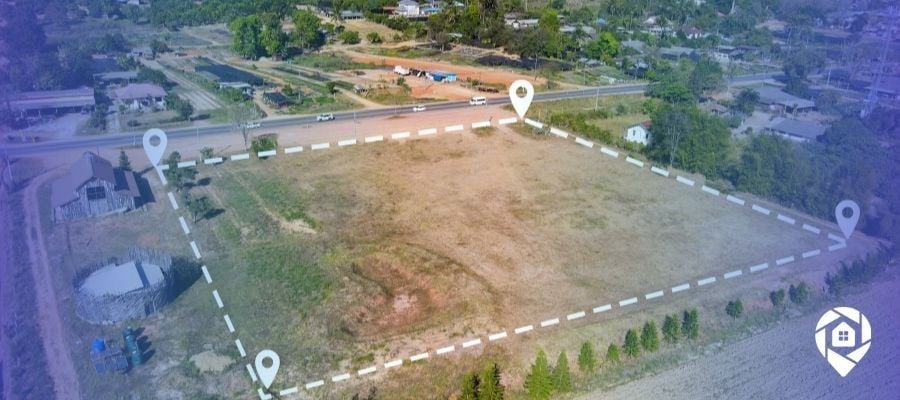
Why Infill Housing Projects Are Seattle’s Next Big Thing

Seattle is growing fast, and housing is in high demand. But instead of building out, some smart developers are building in. This is called infill development - finding underused land in Seattle and turning it into new homes.
Bentley Pugh has built a successful business doing just that. In this blog, we’ll explore how he finds these opportunities, builds a strong team, and navigates the ups and downs of the market - all while helping shape the future of Seattle’s neighborhoods.
What You'll Learn
How Bentley Built a Seattle Infill Empire
Bentley started as a real estate agent who wanted to understand properties from the ground up.
"I wanted to learn how to pull weeds," he said.
But over time, he moved into real estate investment, where he found more excitement and financial reward.
Today, his company buys properties with development potential, either building new homes or selling the lots to builders.
In many cases, he has agreements to list the new properties once construction is complete. On average, every property purchased leads to 2.5 new listings, with homes selling for around $800,000 each.
Finding Value in Underused Land
Seattle has many properties that are underutilized. Some are older rental homes, and others are owner-occupied despite being zoned for multi-unit development.
This infill real estate in Seattle represents a big opportunity.
His team searches for these hidden gems in a few key ways:
-
Reviewing properties with zoning that allows more units
-
Looking for small or distressed properties with teardown value
-
Checking tax records for low improvement value compared to land value
-
Staying on top of local zoning changes
He explains that even when interest rates are high, smart buying makes all the difference.
"If you buy right, there’s always opportunity," he says.
When rates are low, competition increases. But when the market slows, there’s less competition, which can be a good thing for investors.
Growing the Team and the Business
His company has grown steadily and now includes 12 team members, half of whom are virtual assistants. He finds team members through networking, referrals, and even unexpected places.
Once, he hired someone who was asking for petition signatures on a street corner, impressed by their hustle.
He believes in learning what his employees want in life, then helping them get there. This approach creates trust and reduces turnover.
One long-time employee even partnered with him on a deal, and they each earned $125,000.
The $80K Crisis That Reshaped His Business
Every business faces challenges, and his company is no exception. Just before the pandemic, he ended a business partnership and kept the entire team. But the timing couldn’t have been worse.
With about $80,000 in monthly expenses and no salary for himself, he had to lay off everyone when they couldn’t qualify for PPP loans.
During that 60-day break, he launched a lending company and focused on family. When the market began to recover, he restarted the business slowly with a leaner team.
That tough time taught him important lessons about handling pressure and staying grounded.
How He Turned Real Estate Deals Into Lasting Wealth
As the business matured, his approach to money changed. He’s no longer focused only on growth; he’s also protecting what he’s built. Now, he spreads out his investments to create a more stable cash flow.
Some of his strategies include:
-
Lending money to developers who buy his infill lots
-
Buying apartment buildings for long-term income
-
Managing risk more carefully, especially with loans
He regularly checks his loan-to-value ratios to make sure he isn’t overleveraged.
In the early days, he used more debt to grow quickly. But now, with three kids, he’s more cautious.
Teaching the Next Generation
He also makes sure his kids learn about real estate. They go with him to appointments, hear about property values, and sometimes help out. He wants them to understand the value of work and money.
He also encourages giving back. His team helps make sandwiches for those in need, a reminder that success should also serve others.
Why Infill Development Matters
Infill housing projects in Seattle play a key role in creating more homes without expanding the city’s footprint.
By turning underused lots into modern housing, developers like him help meet demand while improving neighborhoods.
He believes infill development is about more than just profits. It’s about smart growth, strong communities, and building a future where more people can afford to live in Seattle.
"I’d rather grind it out and take calculated risks," he says. "I don’t want my life in someone else’s hands."
Watch this short video to see real examples of infill development in Seattle and hear directly from the expert behind the projects.
Frequently Asked Questions
What is infill development in real estate?
Infill development means building new homes on underused or vacant lots in already-developed areas, instead of expanding into untouched land.
Is infill development profitable in Seattle?
Yes. Because of zoning updates and high demand, many investors find that infill housing projects in Seattle offer strong returns.
How do I start with infill housing projects in Seattle?
Start by studying zoning maps, looking for underused lots, and partnering with a knowledgeable real estate expert who understands Seattle’s market.
Final Thoughts
Infill development in Seattle isn’t just a business; it’s a way to create new homes, improve neighborhoods, and build a stronger city.
Bentley Pugh shows how spotting opportunity, working with the right people, and staying focused can lead to success, even in tough times.
Whether you’re thinking about getting into real estate or just curious about how Seattle is changing, his story proves that smart, thoughtful growth can make a big impact.

About Maria Tresvalles
Maria Tresvalles is the dynamic Marketing Specialist at DealMachine, where she has been a key player for the past five years. With a strong background in customer relations, Maria started her journey at DealMachine as a Customer Success Coordinator, where she honed her skills in understanding customer needs and driving satisfaction.



